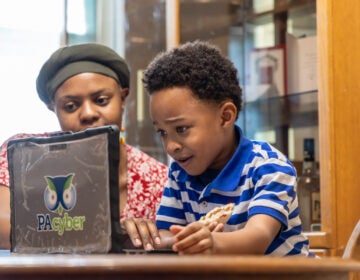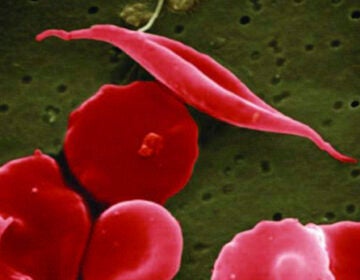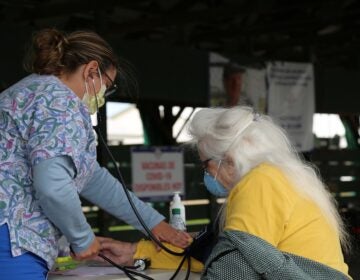Incarceration touches millions with loved ones behind bars. And it’s making many of them sick
The stress of supporting a family member in prison can cause lasting health issues for those on the outside. Consequences can stretch far beyond the person doing the time.
Listen 6:50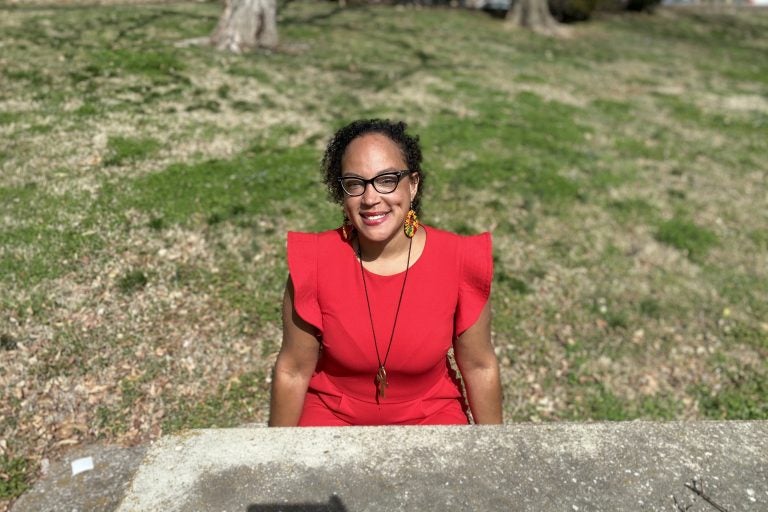
Dawn Harrington helps families stay connected when a relative is incarcerated through classes and support groups. “It’s somewhat kind of like a grieving lost, like somebody dies,” she says. “Because it is, in some ways, that level of separation.” (Courtesy of Dawn Harrington)
This story is from The Pulse, a weekly health and science podcast.
Subscribe on Apple Podcasts, Spotify or wherever you get your podcasts.
At first, Dawn Harrington blamed herself when her younger brother went to prison. She questioned whether she’d been a good influence. She developed anxiety, then fell into a deep depression.
“I didn’t want to get up,” she said. “The first semester that he was gone, I think I got straight F’s, and I was in college. I think I got straight F’s the second semester as well.”
Harrington knows firsthand that incarceration doesn’t just affect the people behind bars. It touches the whole family, as relatives struggle to support their loved ones from the outside. And the stress and anxiety they take on often result in long-lasting physical and mental health issues.
While her brother was incarcerated, Harrington felt her health slipping away. Depression eventually affected her eating habits. She lost her appetite and hated getting out of bed in the morning.
Things got worse when her brother became closed off and hesitant to share his emotions during their calls and visits. She felt they were losing their childhood connection.
“It’s somewhat kind of like a grieving … like somebody dies,” Harrington said. “Because it is, in some ways, that level of separation.”
Her brother spent just over a decade in prison, a period Harrington describes as a roller-coaster for the entire family.
She remembers her dad hearing about her brother’s arrest on the news. The family was in disbelief. Her dad called the news station and threatened to sue them for defamation, unable to accept that the man on the screen was really his son.
Then Harrington recalls him dropping to the ground in their backyard in the middle of winter. He wasn’t wearing any shoes, socks, or even a T-shirt, as he cried and begged God to help the family.
Her mother dealt with her emotions in a different way — creating a shrine to Harrington’s brother.
“He had a room in her house — it was literally memorialized for the whole time when he was gone,” Harrington said. “And she would get so upset, like, even if one of our nieces and nephews would try to run in there and open the door.”
She said it was a struggle to balance their own lives while also trying to support her brother. It was costly to maintain regular communication with him. Many jails and prisons charge for phone calls and emails, and the fees can add up quickly.
When Harrington’s brother was permanently released from state custody in 2015, it brought a sense of peace to her family. She has since become an advocate for people in prisons, the formerly incarcerated, and their loved ones.
She also heads a Tennessee nonprofit, Free Hearts. The group works to keep incarcerated people connected with their families through support groups and classes on both the inside and the outside.
Kids whose parents are in prison can learn about coping skills and self-esteem, while adults behind bars can learn about how to listen, express their emotions, and raise their children from afar.
Harrington works with hundreds of families each year, and she sees the daily toll incarceration takes on them. She said the added stress of COVID-19 brought many of them, especially mothers, to their breaking points.
“They were worried before COVID, even more so worried now,” she said. “It has sent a few family members to the hospital a couple of times. You know, elevated heart rates, just straight-up hypertension.”
Worry without end
Some experts say COVID-19 has highlighted concerns that already existed.
“You see really negative effects on mental health [and] pretty big increases in major depressive disorder,” said Chris Wildeman, a professor of sociology at Duke University. “You see big decreases in life satisfaction.”
Subscribe to The Pulse
Wildeman studies the impact of incarceration on families. He said having a loved one incarcerated increases a person’s chance of experiencing homelessness, and even raises rates of alcohol and drug dependency.
Research has found that children with incarcerated parents are more likely to suffer from high cholesterol and asthma, drop out of school, and develop attention deficit hyperactivity disorder and other learning disabilities.
For parents with incarcerated children, the stress can take years off their lives, Wildeman said.
“There’s new work now that’s coming out that really suggests that having a son incarcerated has large negative effects on mothers’ health,” he said.
That includes higher rates of heart attacks, strokes, and heart failure, which typically affect Black Americans more severely than their white counterparts.
“That’s something that we really need to think about, because it could have big effects on racial disparities in healthy aging, which is a key public health issue in the United States,” Wildeman said.
That concern weighs heavily on Christine Williams’ mind.
Williams is 60 and obese. She fears she won’t live to see the day her son is released from prison. Sometimes, she gets so worried about him that she starts to feel her body shutting down.
Her youngest son is currently serving time in a Tennessee state prison. He’s in his 30s. As a high school football star, he was once a regular fixture in the sports pages of the local newspaper. Now, he’s about seven years into a 12-year sentence for aggravated robbery.
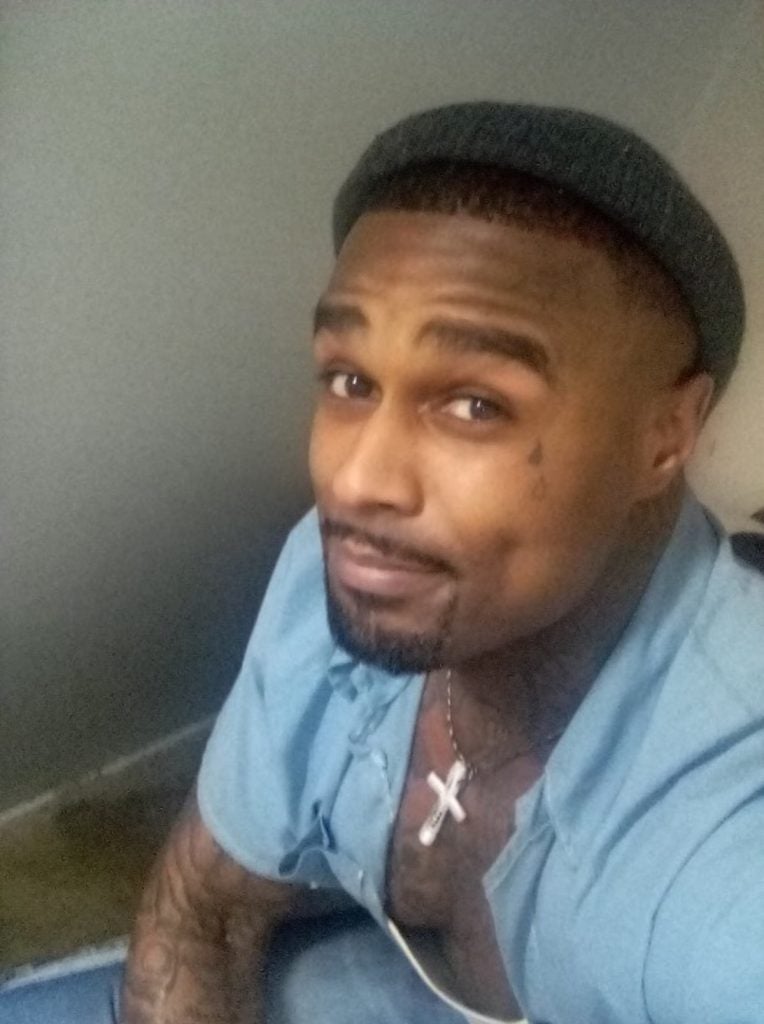
Sometimes, Williams feels like she’s serving that sentence too. She has literally worried herself sick about her son and his health. Some days, she’s tormented by pounding headaches. Other days, she’s so nauseated that she can’t hold down her food.
“Can you imagine having children, and it’s so devastating, you try to put it out of your mind and you just try not to even think of them? You don’t want to think they name,” she said. “You just want to put that out of your mind, and then get up tomorrow.”
Williams wanted to talk to her son, but sometimes, their conversations left her feeling drained and stressed. He’d complain about the little things like the food, and she’d calmly remind him, “It’s jail, baby.”
But when the pandemic hit, her son’s concerns got more serious. One day, he called her crying — a rarity — begging for help. He was sick, and he was scared. And she didn’t know what to do.
“My hands are tied,” she said. “There’s only a few things that I’m really able to do when I know that he is sick or there’s something that may be detrimental to his health.”
In the past, sometimes Williams had to ignore her son’s calls so she could at least try to get a good night’s rest. But she hasn’t done that since the start of the pandemic. COVID-19 has made it harder to communicate with loved ones because of prison lockdowns.
Many family members don’t know when they’ll have the next chance to talk to their loved ones. So every call is treasured.
There’s also added stress stemming from the fear that incarcerated people will get sick from COVID — or even die. In Tennessee, more than 6,500 people in state prisons have tested positive for the coronavirus, and at least 42 have died.
Williams’ son had COVID over the summer. He later broke out in sores all over his body, a painful rash that she said went untreated for three months.
When someone inside sent her photos of her son covered in swollen bumps, Williams said, she got down on her knees and prayed. Then she got on the phone to get her son help. The nonstop calls and texts to prison and health officials took a huge toll on her body.
“When I get it like that, I may stay like that for two days. Then I know this is making me sick,” she said. “So I know that I got to find a way to shake this to be OK.”
Williams finds moments of peace in meditation, and reading spiritual books. She also prays a lot. And, when she’s feeling up to it, she tends to the tomatoes in her garden. She’s trying to take better care of her body, to be there for her son and her loved ones on the outside.
Dawn Harrington said that with so many people affected by incarceration — far beyond those who are actually serving time — she wants people to look at these experiences as a nationwide public health crisis.
“Think about this as not isolated from you, and understanding that this system is not closed off from you,” Harrington said. “Any impacts that this system has on our neighbors, it does impact you as well, because this impacts our overall community health.”
Support for WHYY’s coverage on health equity issues comes from the Commonwealth Fund.
WHYY is your source for fact-based, in-depth journalism and information. As a nonprofit organization, we rely on financial support from readers like you. Please give today.




